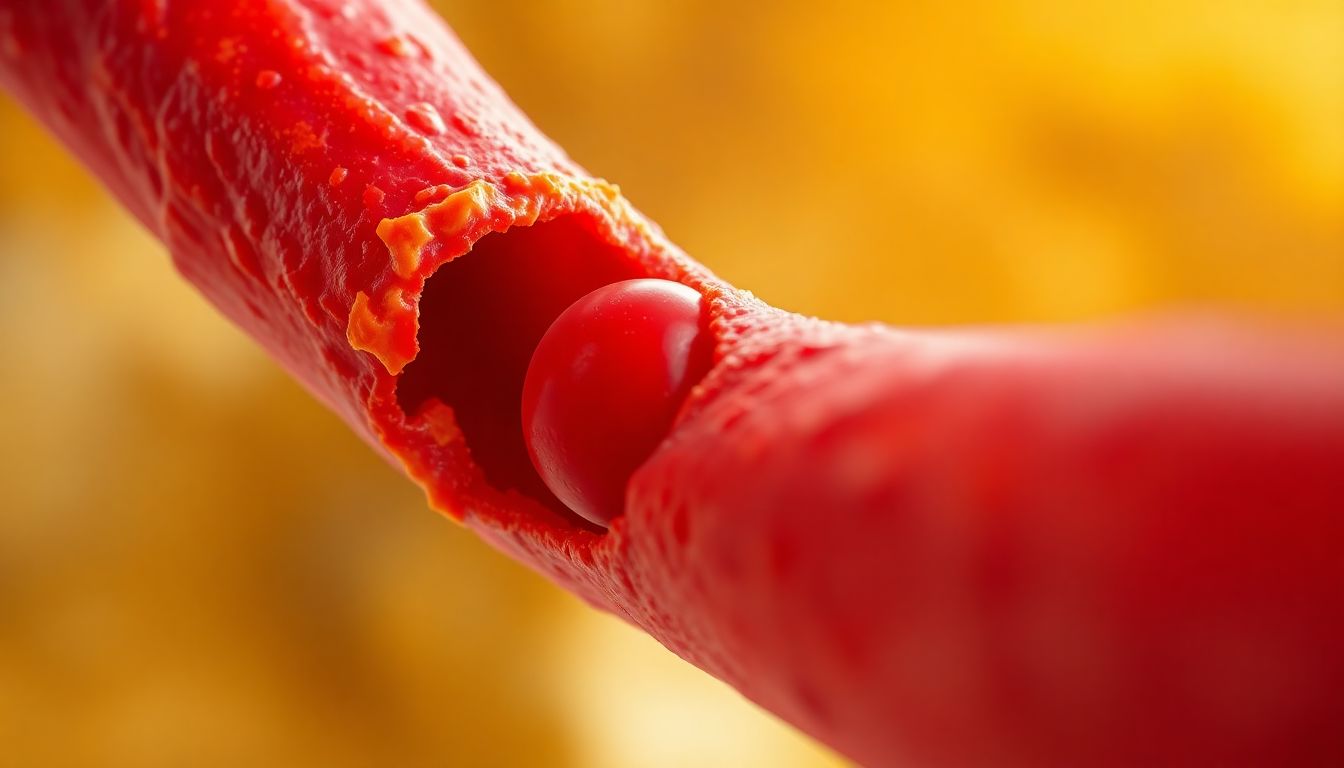
The Dangers of High LDL Cholesterol: Understanding and Managing Excess Bad Cholesterol
High LDL cholesterol, often called “bad cholesterol”, affects millions worldwide and contributes to heart disease. In fact, studies show that approximately 1 in every 5 adults have high cholesterol levels. Understanding what LDL cholesterol is and how it impacts health is crucial. This silent threat can lead to serious health complications if left unchecked.
Understanding LDL Cholesterol and its Sources
What is LDL Cholesterol and Why is it Harmful?
LDL cholesterol is a type of lipoprotein that carries cholesterol in the blood. When levels are too high, it starts to build up on the artery walls, leading to a condition known as atherosclerosis. This buildup can restrict blood flow, increasing the risk of heart disease and stroke.

Dietary Sources of LDL Cholesterol
Certain foods contribute significantly to high LDL cholesterol levels. Foods rich in saturated and trans fats include:
- Red meat
- Full-fat dairy products
- Fried foods
- Baked goods (cakes, pastries)
- Processed snacks
Research indicates a strong correlation between high saturated fat intake and elevated LDL levels. Reducing these foods can improve your cholesterol profile.
Lifestyle Factors Contributing to High LDL
Your lifestyle choices greatly influence your cholesterol levels. Key factors include:
- Physical inactivity: Lack of exercise is linked to higher cholesterol.
- Smoking: This habit lowers good cholesterol, making bad cholesterol levels more impactful.
- Stress: Chronic stress can lead to unhealthy choices and increased cholesterol.
Statistics reveal that 70% of adults are not getting the recommended physical activity, contributing significantly to rising LDL levels.
The Health Risks Associated with High LDL Cholesterol
Cardiovascular Diseases: The Major Threat
High LDL is a major risk factor for cardiovascular diseases (CVD). Elevated LDL levels increase the chances of heart attacks, strokes, and peripheral artery disease. Studies show that an LDL level of 160 mg/dL or higher nearly doubles the risk of heart disease.
Other Health Complications
High LDL cholesterol can lead to other health issues, such as pancreatitis. This painful condition arises from the inflammation of the pancreas and can be a result of severely high triglyceride levels, often linked to high LDL.
Long-Term Consequences and Quality of Life
Living with high LDL cholesterol can significantly affect lifespan and health quality. Individuals with heart disease often experience debilitating symptoms, such as fatigue and chest pain, impacting daily activities and overall enjoyment of life.
Diagnosing and Monitoring LDL Cholesterol Levels
Cholesterol Testing: Frequency and Methods
Regular cholesterol screening is essential to monitor your health. The most common method is a lipid panel, which measures total cholesterol, LDL, HDL (good cholesterol), and triglycerides.
Interpreting Your Cholesterol Results
Understanding your results is crucial. Healthy LDL levels are typically below 100 mg/dL. Levels between 100-129 mg/dL are borderline high. Above 130 mg/dL is considered high.
Consulting with Healthcare Professionals
Discussing your cholesterol results with a healthcare provider is vital. They can help you understand your numbers and develop a personalized plan to manage your cholesterol effectively.
Effective Strategies for Lowering LDL Cholesterol
Dietary Changes: Prioritizing Heart-Healthy Foods
Incorporating heart-healthy foods can lower LDL levels. Focus on:
- Fruits and vegetables
- Whole grains
- Lean proteins (chicken, fish)
- Nuts and seeds
- Healthy fats (olive oil, avocados)
Lifestyle Modifications: The Importance of Exercise
Regular physical activity can improve cholesterol levels. Aim for at least 150 minutes of moderate exercise each week. Activities like brisk walking, swimming, or cycling are excellent choices.
Medication Management: When It's Necessary
Sometimes lifestyle changes aren't enough. Medications such as statins may be necessary to lower LDL levels. Always consult with a healthcare professional to discuss potential side effects and appropriate usage.
Conclusion: Taking Control of Your Cholesterol Health
High LDL cholesterol is a serious health risk that requires attention. Understanding its dangers and implementing lifestyle changes can lead to better heart health. Regular check-ups and a healthy diet can pave the way for a healthier future. Prioritize your heart health today—make the necessary changes and consult with your doctor. Your body will thank you!
No comments:
Post a Comment